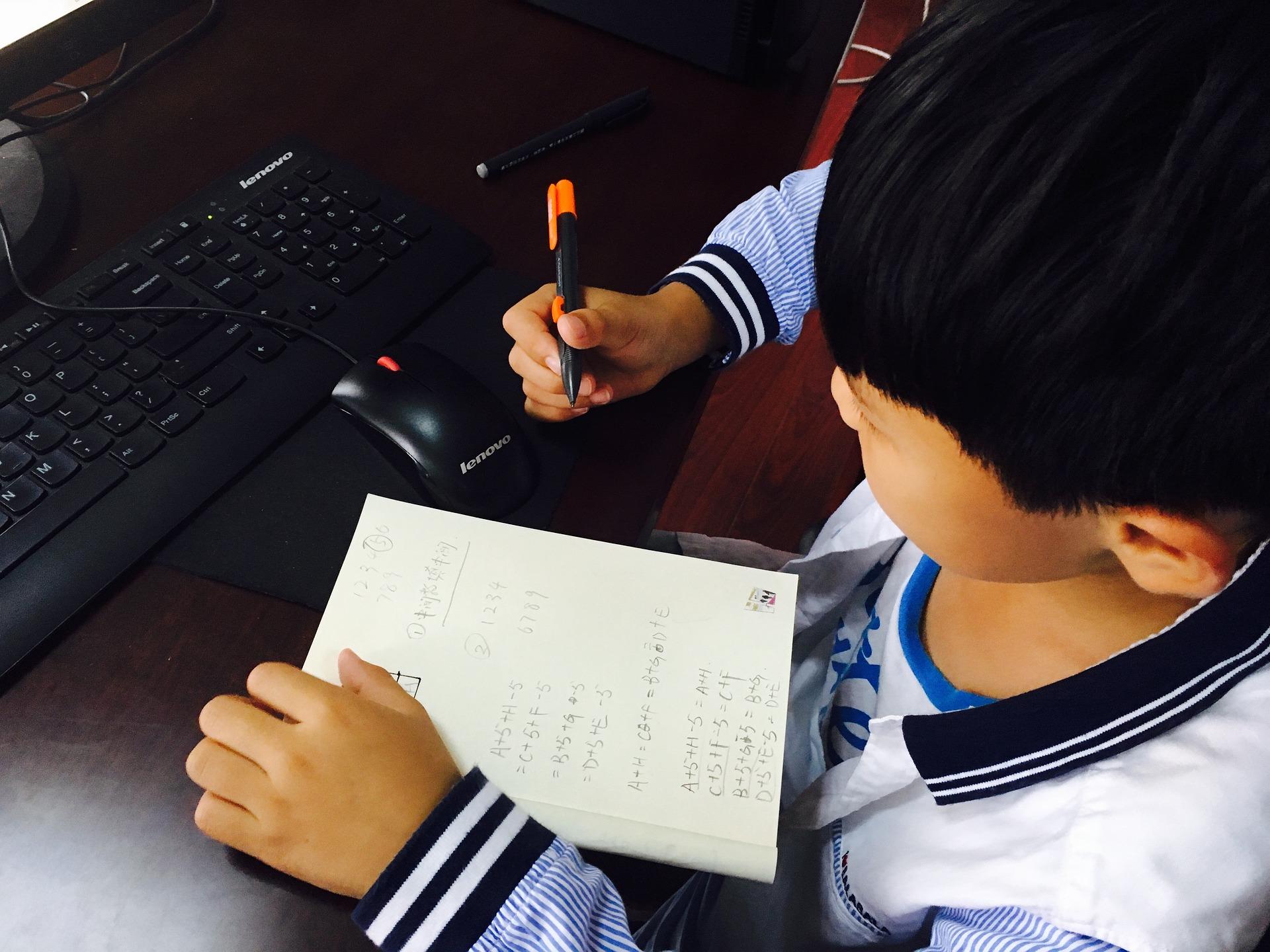The 11 Plus interview can be a nerve-wracking experience for students and their families, as it often plays a significant role in determining admission to prestigious schools. However, with the right preparation and mindset, the interview can become a rewarding opportunity to showcase your skills and personality. In this article, we will provide a step-by-step guide to help you prepare for the 11 Plus interview and give yourself the best chance of success. From tips on what to wear and how to communicate, to advice on how to calm nerves and build confidence, this guide has everything you need to know to ace your 11 Plus interview.

What is the 11-plus interview?
An 11 plus interview is a question based interview that children must complete in addition to the 11 plus exam, which is designed to gauge whether your child displays the correct attitude to learning and the learning environment, both socially and academically. Schools wish to determine whether your child has the capabilities to perform at the expected level and to integrate into the school community. Schools aren’t just looking for children who can meet the academic level expected, but behaviourally express a desire and enthusiasm to learn, and participate in extracurricular activities.
This interview is particularly important because most parents would prefer their children to have access to a grammar school, or a highly regarded private school, and it provides a way to identify the children that are not only gifted academically, but will make the best use of the opportunities given to them. It’s a chance for both parents and teachers to prove that they are willing to put in the effort and talent required to make the most of upper echelon education.
This might sound a little bit disheartening, but compared with the actual 11 plus entry examination, this is not likely to be the hurdle that trips up most children, especially given the right preparation and support from their parents. After all, schools that require an 11 plus exam are not expecting an entire cohort of geniuses and future Einsteins; they would just like to make sure that their students will be capable and dedicated learners. That’s what we’re going to discuss today; how to prepare your child to exert the perfect outward appearance, so that they appear as impressive candidates that your target school will want to have among their students.
I’m writing with the perspective of a young person who used to live in England, where I passed this exam myself, so I have some additional perspective when it comes to what’s expected of children in this situation. I’d like to reassure you parents one last time; I was quite a shy and reserved kid, living in a flat with my single mother who was working most of the time, but despite these antagonistic circumstances, I personally didn’t feel too much pressure. The strategy my parents used to make me feel this way was to take the burden of potential failure off my shoulders, while downplaying the outcome of the test without diminishing its importance. By the time I was faced with the interview and test, all I knew was that I needed to try my best and that my parents would be proud of me for exactly that, whether I passed or failed. They quietly put the burden on their own shoulders instead, giving me extra maths and English tasks to do, and practising interview questions with me. Enough about my own experience now, but I think it's worth seeing a real example of success in this endeavour, so that we know what to look for in our own approach.
You can search for some of the best 11 plus tutoring near me here.

What will they ask in an 11 plus interview?
The questions you can expect are grouped into several categories, based on what they’re testing to find out. These tested qualities will be the following:
- Questions about the child themself
- Questions about the child’s personal characteristics and values
- Questions to demonstrate the child's creativity
- Questions to demonstrate the child’s thinking abilities
- Questions to ascertain the child’s attitude towards learning
- Starting from the top, we have the questions that are designed to have your child describe themself, which is used to gauge who they are as a person, whether they have mature enough interests for their age and academic level and most importantly to test if they have the social competence to introduce and describe themselves to new people, so that they can make friends and get along with similarly minded pupils in their target school.
Some examples might be, “can you describe yourself in three words?” or “what is your biggest ambition in life?”. If you prefer in-person support, local options such as 11 plus tuition in Leeds can be useful.
To prepare your child for these questions, have them practise introducing themselves to friends and family, and gradually help them become more confident in giving their point of view on different subjects. This will help them sound more natural and comfortable in the situation of talking about themselves.
2. Next, we have the questions about your child’s personal characteristics and values. That is to say, the questions that will evaluate your child's current world-view to a certain extent, and whether they have good foundations of right and wrong. The questions will often be about altruism, compassion and determination.
Some common questions in this category include, “What would you do if you were prime minister for a day?” and “When was the last time you did something nice for someone else?”.
I would start having discussions with my child about morality to prepare them for this and present them with various scenarios and dilemmas to ensure that they have a good understanding of what is expected of a good moral citizen, even if it’s only at a surface level.
It’s also the parent’s responsibility to ensure that their child has the opportunity to do good in their lives, and put their morals into practice, since this will give them the best chance at answering questions about their own actions and experiences.
3. Some questions will be aimed at figuring out how creative a child is and children are often presented with strange and unfamiliar scenarios, where they will have to respond with their intuition and ingenuity. These types of questions don’t really have a wrong or right answer, but the most important thing is that your child actually has an answer and that they are good at making sense, even if their ideas wouldn’t work out in the end.
Examples for this category might be “If you met someone who didn’t speak English, how would you communicate with them?” or the child might be asked a common riddle.
To prepare your child for this, introduce them to as much new stimulus as they can comfortably handle. Making sure your child is maintaining a good reading level is a vital way of making sure they are introduced to new words and ideas. My personal approach would be to show a child a historical problem and ask them how they would solve it, before showing them the historical way an inventor solved it. While doing this, I would also explore their ideas as thoroughly as possible to demonstrate to them that there is no such thing as a stupid question when trying to learn and solve problems. You can use any method you’d like to prepare your child for this, so long as they are being constantly exposed to new and unfamiliar things. In addition, many parents find local 11 plus tuition in Manchester helpful for regular practice.
4. Thinking ability is probably where many candidates put most of their focus. I think however that putting too much emphasis on this stage can be harmful, since this is the most similar to what your child is doing in school already, so we don’t want to overload them with stress if they’re already on the right track. The questions in this category will aim to assess your child’s critical thinking, categorisation, logic and reasoning skills.
Children might be given a set of cards or pictures and asked to group and categorise them, providing an explanation for their choice. They might also be shown a sequence and asked to order the events. Sometimes children will be asked for their opinion, like “what do you think of this prose?” and then asked to justify their opinion with a reason.
Instead of trying to make our children relearn what they’ve already spent so much time on in school, we should try to elevate their understanding of logic and reasoning by sharing advanced ideas with them and asking them to evaluate these ideas logically. It’s important that they are skilled with reasoning in general, rather than just in the context of school, because they will be asked to provide reasoning for their answers to all the questions in this category.
5. Finally, (remember there’s no fixed order to the way these will be asked), your child will be asked questions that aim to find out if they possess a positive attitude towards, and an appetite for learning. These questions will be similar to the questions about personality and values, so it might be a good idea to train them together, as long as you don’t get them confused.
The most common examples of these questions has to be, “what is your favourite subject?”. But more complex questions might be thrown in, such as, “what made you choose this school as your first choice?”.
When preparing your child for these questions, it’s important to make it clear that the decision to attend a more prestigious school is just as much their decision as yours. The child must be able to appear independent enough to understand the difference in quality and opportunities that their choice in school will provide, and justify their desire to attend. Another good way of preparing is to have the same conversations with your child that you might expect in the questions. Spend time with them and ask them about their day, what their favourite parts of school life are, and what they would change if they could. There’s no reason to fake enthusiasm and understanding when you can help your child display the real deal with engaging parenting.
So what now?
Now that you know what to expect from the 11 plus interview, and have some strategies to prepare yourself and your child for the experience, why not check out our other articles about the 11 plus exam, “8 top tips to improve verbal reasoning” and “Top 15 books for 11 plus students”. These articles contain information that will further prepare you to make the most of this unique opportunity in your child’s life. We’ve got plenty more articles on other subjects too, here on superprof. We hope to see you soon!

Summarise with AI:
















